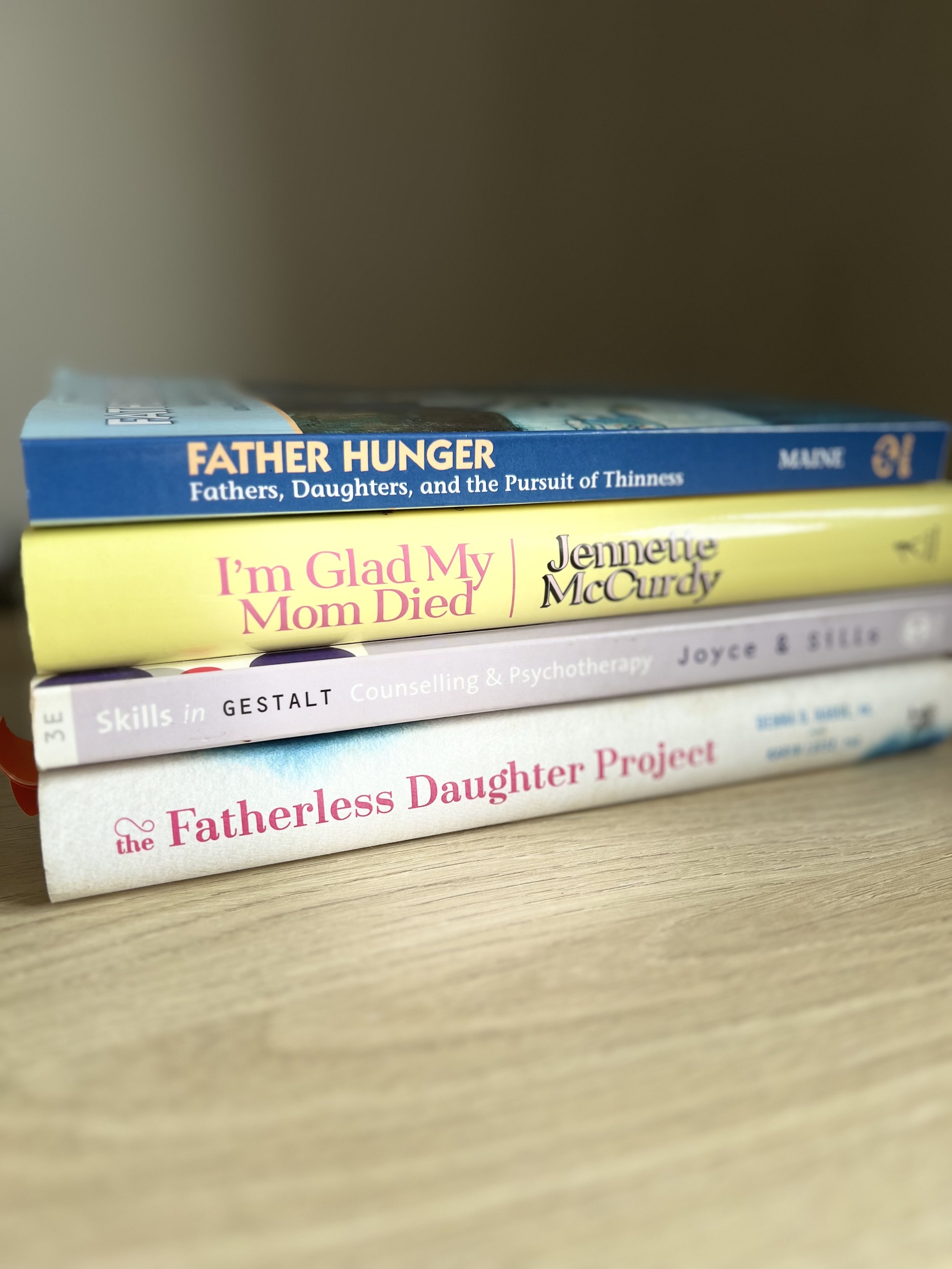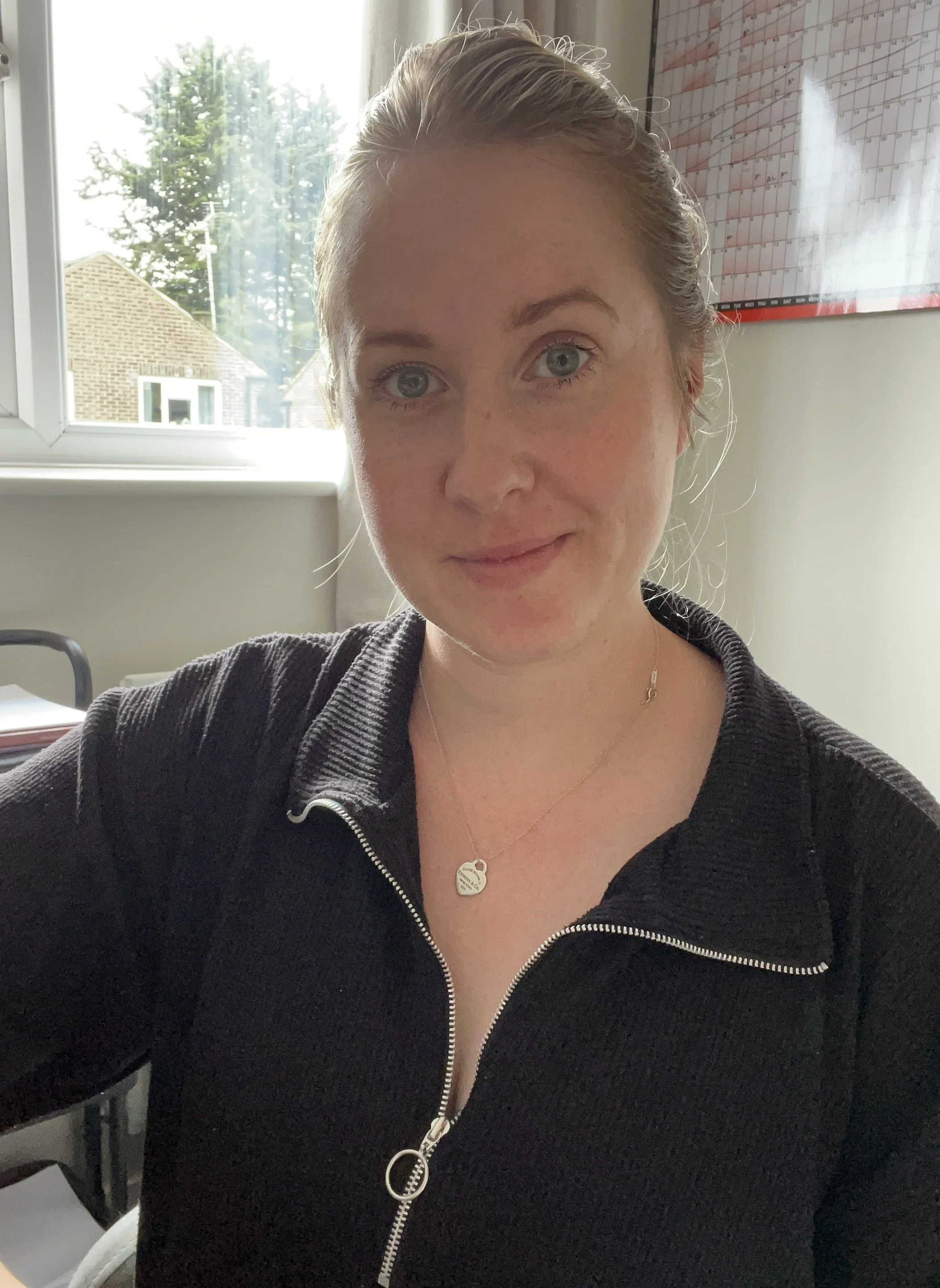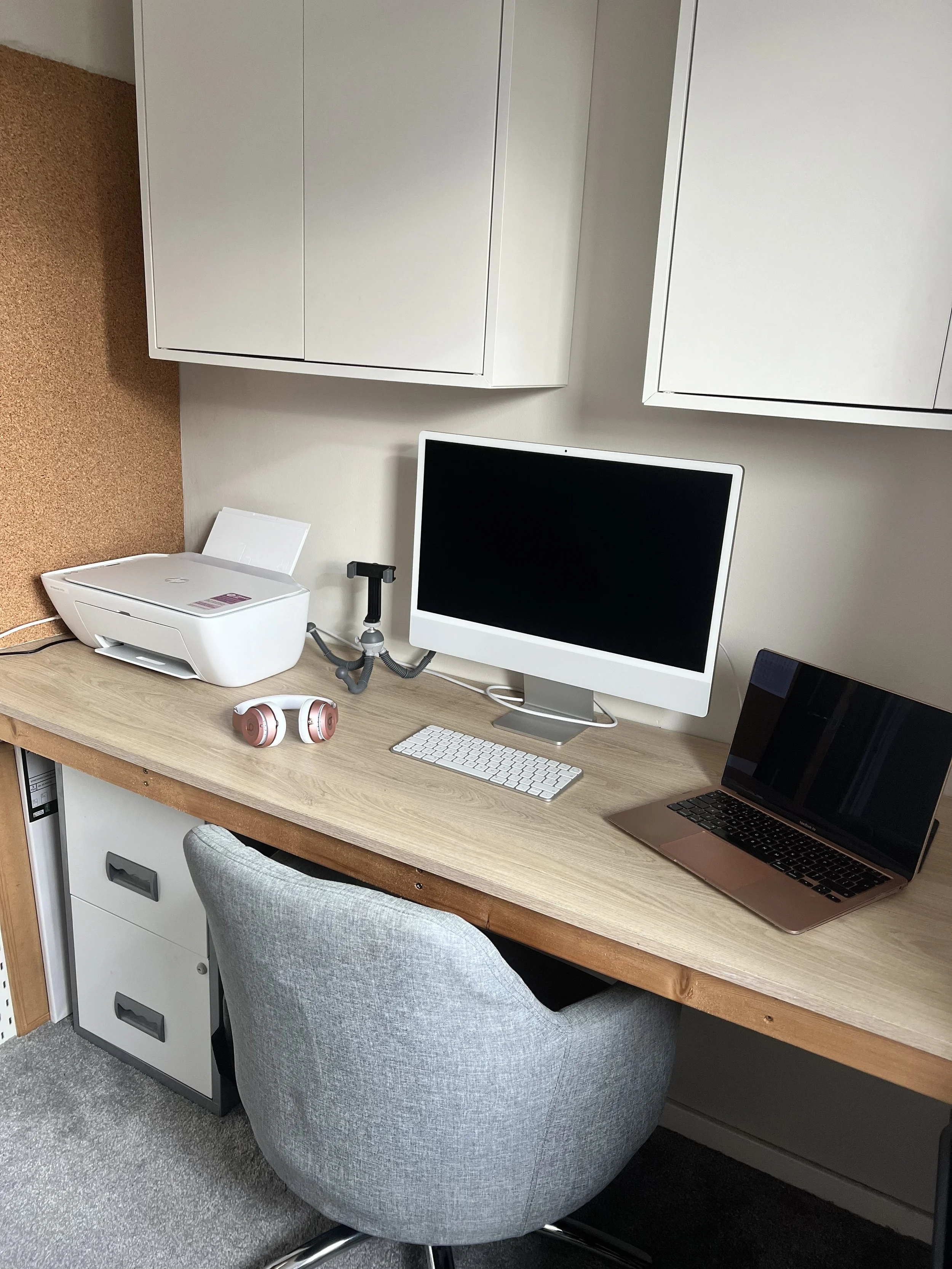Coming home to yourself…
I like to think of therapy not as fixing or performing, but as coming home to yourself, maybe for the first time.
It’s like slowly peeling back the layers of everything you’ve had to be.
The survival mode. The pressure to be okay. The silence around your needs.
And underneath all of that? There’s still a you in there.
This space isn’t about making you “better.”
It’s about making you feel safe again, not just in the world, but in your own skin.
In therapy, we begin to clear the emotional clutter.
To stop reaching outward for validation and start reaching inward for understanding.
Not to disconnect from others, but to actually reconnect with yourself.
Because while the world might encourage boundaries, boldness, and cutting people off. If you’ve lived with abandonment or family estrangement, you probably don’t need more distance.
You need more connection - especially with yourself.
Identity & The Father Wound
Now here’s the part that might catch you off guard.
Maybe no one’s ever helped you connect the dots between how you feel now — anxious, lost, unsure of your place in the world — and your relationship with your father.
But I want to ask you, gently:
What was that relationship like?
Was he in the house, but emotionally absent?
Around, but you never really felt seen by him?
Did you find yourself constantly trying to earn his attention, his love, his approval, only to feel like it was always just out of reach?
Or maybe he wasn’t there at all.
And no one ever gave you space to grieve that.
That kind of absence leaves a mark. It doesn’t always scream (sometimes) it whispers through your nervous system, your people-pleasing, your fear of being too much or not enough.
It shows up in your relationships, your work, your anxiety… even in how you speak to yourself when no one else is around.
And if no one has ever named that for you before, let me do that now.
This is grief.
The grief of what you needed and didn’t get.
The grief of not feeling protected, prioritised, or emotionally held.
And it is absolutely valid.
But here’s the part you need to know:
It’s not your fault.
…..I’ve been there myself
Growing up, I was a total daddy’s girl - my dad was my world. But when my parents divorced when I was 12, everything changed. Our relationship became chaotic, and eventually, he asked to never see me again. He struggled with alcohol, and like his own father, carried a lot of unresolved pain.
His absence left a huge void in my life, and for years I tried to fill it with self-destructive behaviours - unhealthy relationships, choices that I knew weren’t good for me, and paths that only led me to more pain. Therapy was the turning point for me. It helped me start to make sense of it all and find a way forward, reconnecting with myself and the life I wanted.
Now, as a therapist, I bring both personal experience and professional training to my work. I know how abandonment can shape your life, but I also know how to create the space to help you make sense of your story and move toward something better. I still attend my own therapy regularly to make sure I’m showing up fully for you without bringing my own stuff into the room.
When I’m not working, I’m navigating the messy, beautiful chaos of motherhood, cosying up on the sofa or escaping into nature where I feel most at peace. Life is messy, but it’s in those messy moments that we often find the most growth.
What Therapy Can Look Like
I know therapy isn’t a one size fits all approach, so I offer two options to suit your needs:
Open Ended-Therapy
If you feel ready to explore the deeper layers to how your father’s absence has shaped your life, open-ended therapy provides the space and time to do so.
This approach is about gently uncovering how your father’s absence has shaped your relationships and self worth today, as well as finding ways to reconnect with yourself - your needs, your boundaries, and the parts of you that may feel forgotten or silenced.
There’s no rush and no set endpoint - just the safety and support to work through things at your own pace.
Session Length: 50 Minutes
Frequency: Weekly or bi-weekly (you decide what feels right)
Fee: £80
Single Session Therapy
Sometimes, you might not feel ready for ongoing therapy - or maybe you have a specific situation you’d like to focus on, like setting a boundary, putting yourself first without feeling guilty, or seeking validation around a specific issue in your work or personal relationships.
Single sessions offer a space to explore these sessions and provide insights, clarity, and practical tools you can take away with you. This approach gives you the opportunity to reflect on what we’ve discussed, connect it to other areas of your life, and see how it feels to act on the learning before deciding if you need further support.
If, after the session, you feel like more help would be beneficial, you’re always welcome to book another appointment when you’re ready. There’s no pressure - it’s all about what works best for you.
Session Length: 90 Minutes
Fee: £120
Other Ways Your Absent Father May be Impacting You Emotionally.
An absent father can leave deep emotional wounds that often carry into adulthood. These wounds are not always obvious, but they can help profoundly shape how individuals view themselves, their relationship, and the world around them. Here are some common emotional impacts:
Low Self Worth: Growing up without a father figure can lead to feelings of inadequacy or unworthiness - something I still struggle with on occasion, today. Many children internalise their father’s absence, believing it reflects something about their value or lovability. This can manifest as self-doubt or constant need for external validation in adulthood. So if you find yourself constantly feeling unsure of yourself or needing others to make decisions for you, then it might be because you don’t trust the feelings and thoughts you have are worthy or even valid.
Fear of Abandonment: An absent father can create a lingering fear that others may also leave. Hence why I called myself the Abandonment Therapist on social media - not the most attractive or inviting handle, but one that gets right to the point. This fear of abandonment often shows up in relationships, leading to clinginess, anxiety, or difficult trusting others. For some, it might result in avoiding relationships altogether to shield themselves from any potential pain. This also includes therapy, because lets face it, there’s nothing comfortable about being faced with the root cause to all of your problems.
Difficulty Trusting Others: Without the early foundation of a reliable father figure, trusting others can feel risky. This mistrust can extend to friendships, romantic relationships, or even professional dynamics, making it harder to build meaningful connections.
Emotional Avoidance or Over-dependence: Some individuals cope by suppressing their emotions and avoiding vulnerability, while others may become overly dependent on partners or friends to fill the emotional void left by their father. Both patterns can create challenges in forming balanced, healthy relationships.
Unresolved Grief or Anger: There is often a sense of grief or anger tied to a father’s absence - grief for what was lost and anger for what could have been. These emotions, when unaddressed can contribute to feelings of frustrations or resentment in adulthood.

My Virtual Office
I provide online and telephone based counselling to those suffering from abandonment and grief related issues from a private space in my home, in the U.K. Get in touch to find out my availability here.
BUPA, Vitality Health, WPA & Aviva registered counselling.
Practical Details
Where: Sessions are held online, so you can join from the comfort and privacy of your own home.
When: I offer weekday daytime sessions on Monday and Wednesdays - please get in touch for current availability.
Fee: Open-ended therapy is £80 per session, and single sessions are £120. I also accept BUPA, WPA, Vitality Health and Aviva Health Insurance.
Free Consultation: If you’re unsure about starting therapy, I offer a free 15-minute consultation. This call allows you to expand on what you mentioned in your initial enquiry and help us determine if we could be a good match for each other. There’s no obligation to commit at this point, and if we find that I’m not the right therapist for you, I’m more than happy to provide recommendations.
What happens next?
Please fill in the enquiry form below and I will aim to get back to you within a week - to arrange a suitable for a free consultation. This is a space for you to ask any questions and elaborate on what’s bringing you to therapy.


